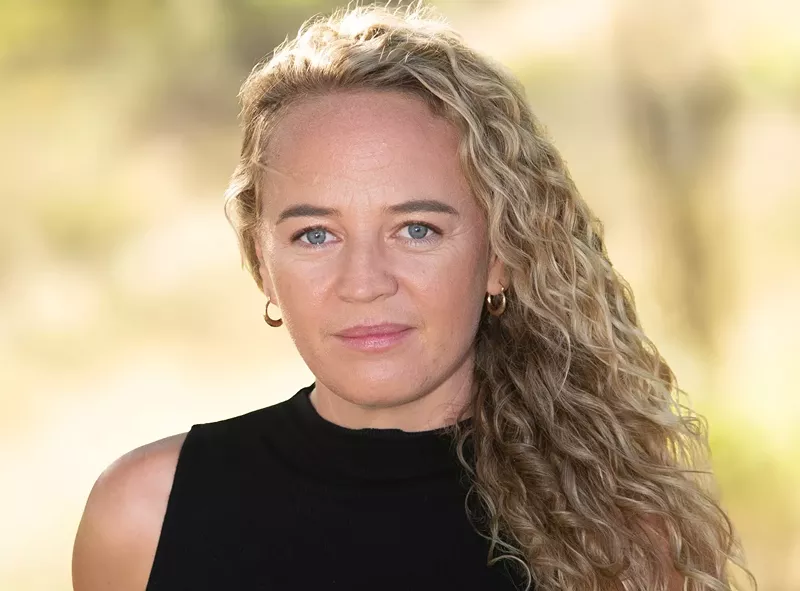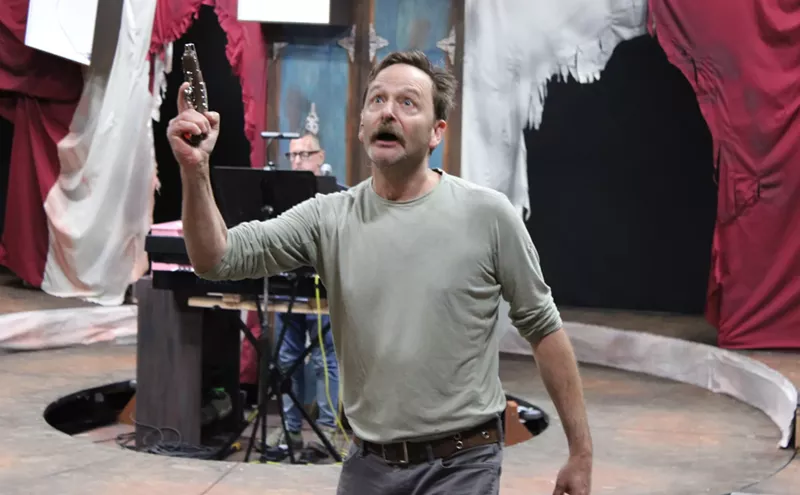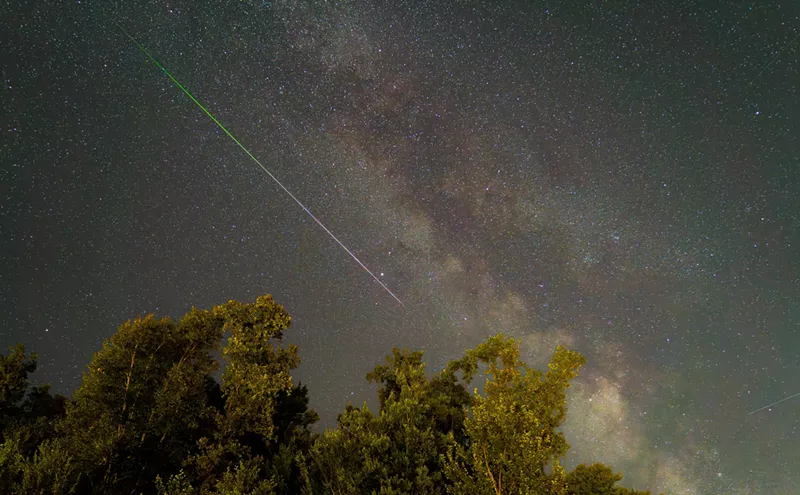Poet and printmaker Robin Walter got her MFA up at Colorado State University, and despite conventional wisdom that holds that graduates don't often teach where they matriculated, she's nonetheless earned herself a spot on the CSU faculty roster. On April 1, she debuted her collection of poetry, Little Mercy.
Walter will be making several appearances around Colorado to read from and sign Little Mercy, starting up in Fort Collins with Dan Beachy-Quick on April 12 at the Center for Creativity; at the Boulder Bookstore with Ramona Ausubel on April 29; and with Rebecca Spiegel at the Tattered Cover Colfax on May 8.
Little Mercy is being published by the prestigious small press Graywolf after winning the 2024 Academy of American Poets First Book Award, as selected by poet Victoria Chang. Chang says the poems within are "beautiful and meditative" and "quietly and gently ask us to look at all the natural beauty and cruelty (but mostly beauty) we face each day, every minute, every second of our strange time on this earth."
And it was a "strange time on this earth" indeed that helped to bring this collection about, according to Walter. A Colorado native who'd spent a good amount of time on her grandad's cattle ranch up in Wyoming, Walter had worked for some time leading wilderness arts workshops up in the shadows of the Big Horns. In doing that work both independently and then for CSU, she was kicked in the face by a mule. And if that wasn't bad enough — it was 2020, and COVID was rampant.
"As part of that quarantine process," Walter says, "I was up in a cabin by myself, just healing. I didn't have a lot of mobility at that time — my collarbone had been broken, among other things — and I spent a lot of time on the porch of that cabin beneath this beautiful nest of wrens. I spent most of that summer that way, grounded in this beautiful and spectacularly symphonic landscape, with a backdrop of a difficult political culture and a world in crisis. It wasn't the easiest time, but it made me find a quietness in myself. To make my own shelter."
Walter recalls the cabin itself with fondness despite its rusticity. "No electric, but there was running water. Spring-fed," she says. "The whole thing was probably smaller than my kitchen at home. I was very alone up there, but never really felt it because I had all this wildlife that I was co-habiting with. The mice around me, the wrens above me, my dogs Banjo and Fiddle. And there was no Wi-Fi, obviously, so I just had my journal in which I wrote by hand and a few books."
Walter says she owes a lot of her connection to the natural world to growing up in Colorado Springs. "It made me more porous to the influence of nature," she explains. "There's not as much of a distinction between the city and the rest of the world. It had a lot to do with me valuing that — needing it, really — in my adult life. I spent a lot of time around animals as a kid too — horses, mainly — and that teaches you to attune yourself to a different sort of language, a responsiveness and receptivity that being around animals offers you. That probably has a lot to do with allowing me to do the noticing that was required of me for this book."
It's that noticing that characterizes Little Mercy, which isn't so much a collection in the traditional sense as it's almost a book-length poem itself. Yes, pieces are divided into individual fun-size smackerels of language, and each has its own title — but the book is meant to be taken as a whole, much like studio albums from the 1970s, these opuses of cohesive small parts making a larger whole. The structure of the whole is pliant, even loose, but it returns to certain touchstones over and over to suggest a hollow-boned but effective structure. Palms, wrens, nests, hands, cradle, wings. Almost like a sestina.
"I wrote so much of it sitting beneath a physical nest," Walter says, "that a lot of it comes from that idea. If each poem is a twig, they can come together in any number of ways. I also spent a lot of time along Piney Creek and considered the ways the words move in and out and with each other. How the language goes underground and emerges again, and eddies form, and repetition, and image and sound. Things come back, and back, and back again."
Walters is already at work on her next collection, which she says is a departure from her first. "It's a little less driven by logic," says Walter, "and is a little more driven by syllable and sound. But I think there's a kind of listening that happened in Little Mercy that's happening in this next one too. And having a faith in the way that comes, a little patience in the process. To make myself available to the kind of logic that is not mine but that visits us when we're lucky and quiet."
Walters will read and sign Little Mercy at Tattered Cover Colfax on May 8 from 6 to 8 p.m. Tickets start at $7.25 and can be purchased at eventbrite.com.

Audio By Carbonatix
[
{
"name": "GPT - Billboard - Slot Inline - Content - Labeled - No Desktop",
"component": "23668565",
"insertPoint": "2",
"requiredCountToDisplay": "2"
},{
"name": "STN Player - Float - Mobile Only ",
"component": "23853568",
"insertPoint": "2",
"requiredCountToDisplay": "2"
},{
"name": "Editor Picks",
"component": "17242653",
"insertPoint": "4",
"requiredCountToDisplay": "1"
},{
"name": "Inline Links",
"component": "18838239",
"insertPoint": "8th",
"startingPoint": 8,
"requiredCountToDisplay": "7",
"maxInsertions": 25
},{
"name": "GPT - 2x Rectangles Desktop, Tower on Mobile - Labeled",
"component": "24956856",
"insertPoint": "8th",
"startingPoint": 8,
"requiredCountToDisplay": "7",
"maxInsertions": 25
},{
"name": "Inline Links",
"component": "18838239",
"insertPoint": "8th",
"startingPoint": 12,
"requiredCountToDisplay": "11",
"maxInsertions": 25
},{
"name": "GPT - Leaderboard to Tower - Slot Auto-select - Labeled",
"component": "17676724",
"insertPoint": "8th",
"startingPoint": 12,
"requiredCountToDisplay": "11",
"maxInsertions": 25
}
]













